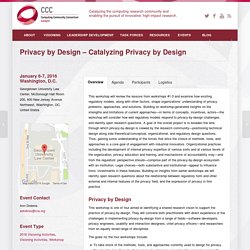

Your iPhone knows where you’ve been, puts it on a map. In April 2011, iPhone and iPad users were surprised to discover that, not only was their device keeping track of where they’d been, it also was storing very detailed location information in a plain-text file on the phone.

The data was derived by the cell towers and Wi-Fi hotspots the devices encountered, and was added anonymously to a crowdsourced database. Apple later said the devices were keeping more information than intended due to a bug, and issued a patch that reduced the amount of data. But, because it was used to improve and speed up location services, the practice continued. And now, in iOS 7, Apple has added a tool that lets you see what your iPhone knows about where you go. If you’ve got an iPhone 4S or later running iOS 7, follow these steps: 1. 2. 3. 4. 5. Why in the world would Apple collect this kind of detail about your movements? In fact, Google collects similar information about you – and in greater detail - if you use its location-based products.
Shmat oak08netflix. Privacy by Design - Catalyzing Privacy by Design - CCC. This workshop will review the lessons from workshops #1-3 and examine how existing regulatory models, along with other factors, shape organizations’ understanding of privacy problems, approaches, and solutions.

Building on workshop-generated insights on the strengths and limitations of current approaches—in terms of concepts, incentives, actors—the workshop will consider how well regulatory models respond to privacy-by-design challenges, and identify open research questions. A goal of the overall project is to broaden the lens through which privacy-by-design is viewed by the research community—positioning technical design along side theoretical/conceptual, organizational, and regulatory design questions. Thus, gaining some understanding of the forces that drive the choice of methods, tools, and approaches is a core goal of engagement with industrial innovators.
Privacy by Design The goals for the four workshops include: Privacy by design. Online services that store our personal information have proliferated, yet the technology to underpin how our privacy is safeguarded has lagged behind.

This was the conclusion of a 2008 report by the UK’s Information Commissioner’s Office, a body set up to uphold privacy for individuals, which pressed for “the evolution of a new approach to the management of personal information that ingrains privacy principles into every part of every system in every organisation.” This ethos underpins research led by Professor Jon Crowcroft, the Marconi Professor of Communications Systems in the Computer Laboratory. Two projects he leads aim to minimise privacy risks, and at the heart of both is the concept of ‘privacy by design’. “Privacy by design means that it’s in-built as part of the technology, rather than bolted on in order to comply with data protection laws,” he explained.
How Do I Measure My Privacy by Design Program’s Success? By Libbie Canter and Jeff Kosseff, CIPP/US During the IAPP’s Global Privacy Summit in March, we spoke at a preconference workshop about developing and implementing Privacy by Design programs.

Companies, government agencies and other organizations are eager to build privacy considerations into all phases of their operations. Although the workshop lasted for four hours, it could have gone for the entire day thanks to excellent questions and comments from the audience. Among the most thought-provoking questions: How do you measure the success of a Privacy by Design program? As with many great questions, the answer is not simple. This may create challenges when the C-suite or others want to know whether investments in Privacy by Design are paying off and whether the program is operating effectively. Data and Information Management - IPC. Le concept de « Privacy by Design »: un remède à l’insuffisance des moyens actuels de protection de la vie privée. Pour plus de confort, cet article est téléchargeable au format PDF !

La protection de la vie privée et des données à caractère personnel est dans tous les esprits. En effet, l’actualité témoigne depuis quelques temps d’une recrudescence d’atteinte à la vie privée des individus. Google a été condamné par la CNIL à une sanction pécuniaire de 100 000 euros le 31 mars 2011 ((Source : pour avoir enregistré des données techniques et personnelles issues de réseaux Wifi mis en place par des particuliers à leur insu par les voitures « Google Cars ». L’objectif de ces voitures est d’enregistrer des vues panoramiques servant à Google Maps et Google Street View.
Néanmoins, ces voitures ne faisaient pas qu’enregistrer des vues panoramiques, elles retranscrivaient également des données à l’insu des particuliers, ce qui constitue une véritable atteinte à la vie privée des individus. On peut légitimement se poser la question : Comment faire pour résoudre ce problème ? Intervenir en amont Le Smart Grid.